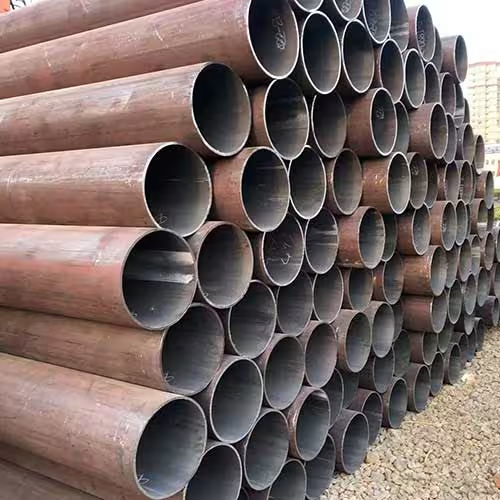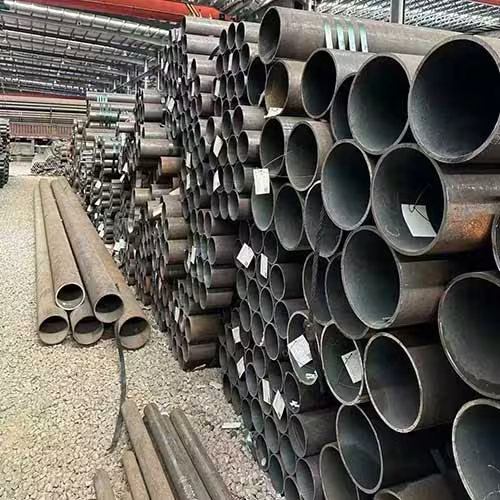Welcome to My Blog!
Before we dive into the content, I’d love for you to join me on my social media platforms where I share more insights, engage with the community, and post updates. Here’s how you can connect with me:
Facebook:https://www.facebook.com/profile.php?id=61565500692293
Now, let’s get started on our journey together. I hope you find the content here insightful, engaging, and valuable.
Table of Contents
Introduction
If you’re involved in construction, manufacturing, or infrastructure projects, you’ve probably come across carbon steel pipes more than once. But have you ever stopped to ask why carbon steel pipe properties are such a big deal?
Understanding the material you’re working with—especially something as foundational as piping—can make a significant difference in your project’s success. Whether you’re planning a water distribution system, oil transport line, or mechanical structure, knowing how carbon steel performs under various conditions helps you make better, more cost-effective decisions.
Let’s dive into what makes carbon steel pipe properties important and how they can directly impact your work.
What Are Carbon Steel Pipe Properties?

Before we get into why they matter, let’s define what we mean by carbon steel pipe properties. These refer to the physical, chemical, and mechanical characteristics of carbon steel pipes that influence how they perform in different applications.
Key Properties of Carbon Steel Pipes
| Property | Description |
|---|---|
| Strength | High tensile and yield strength makes them ideal for high-pressure systems |
| Hardness | Offers resistance against wear and tear |
| Ductility | Can be bent or formed without cracking, perfect for fabrication |
| Thermal Conductivity | Conducts heat efficiently, used in heat exchangers |
| Corrosion Resistance | Low alloy versions require coating; higher carbon content is more vulnerable |
| Weldability | Easily welded with proper techniques |
These core properties determine the pipe’s suitability for everything from underground piping systems to machinery components and structural frameworks.
How Carbon Steel Pipe Properties Affect Performance
Let’s connect these properties to real-world outcomes. When you choose carbon steel piping, the material’s performance hinges on its composition and treatment.
1. High Strength Means Longevity
Because of its superior tensile strength, carbon steel pipe can handle high-pressure applications such as oil and gas pipelines or industrial steam lines without risk of failure.
2. Durability in Harsh Environments
Carbon steel’s hardness and fatigue resistance allow it to perform well under cyclic loading and in abrasive conditions—think slurry pipelines or heavy-duty structural uses.
3. Cost-Efficiency for Large Projects
Compared to alloy or stainless steel, carbon steel is more affordable while still offering strong performance. That makes it ideal for bulk infrastructure projects, especially when combined with surface treatments for added corrosion resistance.
According to industry data from global materials databases, carbon steel pipes maintain mechanical stability at temperatures ranging from –20°C to 400°C depending on the grade—making them versatile for cold or hot environments.
Choosing the Right Carbon Steel Pipe for the Job
Different projects require different grades and types of carbon steel. Choosing the correct pipe means matching carbon steel pipe properties with the application requirements.
Common Grades of Carbon Steel Pipes
| Grade | Main Use Case | Strength Level |
|---|---|---|
| ASTM A106 | High-temperature service (boilers, process piping) | High |
| ASTM A53 | General-purpose piping | Moderate |
| API 5L | Oil and gas transmission lines | High |
| ASTM A333 | Low-temperature applications | Moderate to High |
Each grade provides a different balance of mechanical properties, chemical composition, and performance under stress.
Applications That Rely on Carbon Steel Pipe Properties

Wondering where you might use carbon steel pipes? Here are just a few industries that rely on these properties every day:
- Energy & Utilities – Natural gas pipelines, steam distribution
- Construction – Structural supports, water mains
- Automotive & Machinery – Hydraulic lines, cylinder tubing
- Shipbuilding & Offshore – Piping exposed to marine environments
- HVAC Systems – Chilled water lines, ventilation support
These are all areas where the properties of carbon steel pipe—from tensile strength to corrosion resistance—determine not just longevity but safety and efficiency.
Conclusion
When it comes to choosing the right pipe, cost and availability matter—but performance matters even more. The carbon steel pipe properties you choose will influence how well your system performs, how long it lasts, and how much maintenance it will require.
By understanding characteristics like tensile strength, ductility, and corrosion resistance, you can make smarter decisions that save money and reduce risk over the long term.
So next time you’re sourcing materials, remember: not all steel pipes are created equal—and knowing their properties gives you the edge.
FAQ
What makes carbon steel pipes different from stainless steel?
Carbon steel pipes have higher carbon content and no chromium, making them stronger but less corrosion-resistant than stainless steel.
Can carbon steel pipes be used in drinking water systems?
Yes, but they must be coated or lined to prevent corrosion and contamination.
Are carbon steel pipes easy to weld?
Generally, yes—especially if the carbon content is moderate. Preheating may be necessary for higher-carbon grades.
What is the lifespan of carbon steel pipes?
Depending on usage and environment, properly maintained carbon steel pipes can last up to 50 years.
Do carbon steel pipes rust?
Yes, without protective coatings or treatments, carbon steel is prone to rust, especially in humid or acidic environments.

